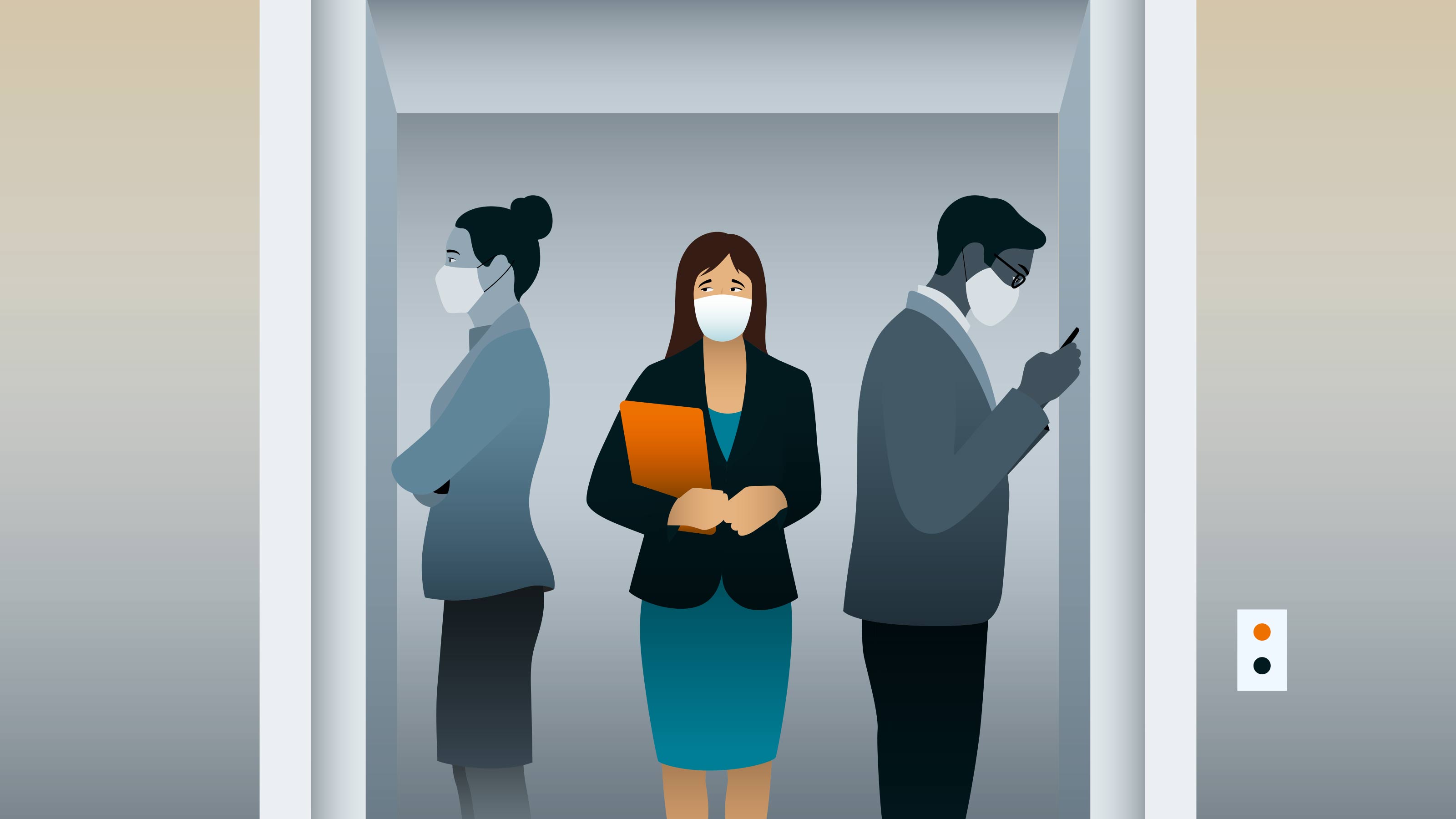What Happens If Your Employer Goes Broke?
You might still get health and retirement benefits depending on the type of bankruptcy protection for which it files.

Profit and prosper with the best of Kiplinger's advice on investing, taxes, retirement, personal finance and much more. Delivered daily. Enter your email in the box and click Sign Me Up.
You are now subscribed
Your newsletter sign-up was successful
Want to add more newsletters?

Delivered daily
Kiplinger Today
Profit and prosper with the best of Kiplinger's advice on investing, taxes, retirement, personal finance and much more delivered daily. Smart money moves start here.

Sent five days a week
Kiplinger A Step Ahead
Get practical help to make better financial decisions in your everyday life, from spending to savings on top deals.

Delivered daily
Kiplinger Closing Bell
Get today's biggest financial and investing headlines delivered to your inbox every day the U.S. stock market is open.

Sent twice a week
Kiplinger Adviser Intel
Financial pros across the country share best practices and fresh tactics to preserve and grow your wealth.

Delivered weekly
Kiplinger Tax Tips
Trim your federal and state tax bills with practical tax-planning and tax-cutting strategies.

Sent twice a week
Kiplinger Retirement Tips
Your twice-a-week guide to planning and enjoying a financially secure and richly rewarding retirement

Sent bimonthly.
Kiplinger Adviser Angle
Insights for advisers, wealth managers and other financial professionals.

Sent twice a week
Kiplinger Investing Weekly
Your twice-a-week roundup of promising stocks, funds, companies and industries you should consider, ones you should avoid, and why.

Sent weekly for six weeks
Kiplinger Invest for Retirement
Your step-by-step six-part series on how to invest for retirement, from devising a successful strategy to exactly which investments to choose.
What will happen to my health insurance and retirement plans if my employer files for bankruptcy?
If the company files for Chapter 11 bankruptcy protection, it could end up restructuring, and your benefits may not be affected. But the employer is likely to cut back on some of your benefits even if it continues to operate.
On the other hand, if the company files for Chapter 7 bankruptcy and shuts down, its benefits plans will be terminated. But several laws protect the benefits you've already accrued and can help you find health coverage.
From just $107.88 $24.99 for Kiplinger Personal Finance
Become a smarter, better informed investor. Subscribe from just $107.88 $24.99, plus get up to 4 Special Issues

Sign up for Kiplinger’s Free Newsletters
Profit and prosper with the best of expert advice on investing, taxes, retirement, personal finance and more - straight to your e-mail.
Profit and prosper with the best of expert advice - straight to your e-mail.
Your 401(k) plan. Assets must be held in a separate trust that the employer -- or its creditors -- can't touch, regardless of the employer's financial situation. If your employer files for Chapter 11 bankruptcy, it could continue to administer its 401(k) plan, but it may discontinue matching contributions. However, there's nothing to protect you from any loss in value of the investments -- which can be a big problem if you have a lot of company stock. That's why it's important not to invest all of your 401(k) money into company stock.
If the company shuts down, the 401(k) plan will be terminated and the assets will be distributed to the participants. Then you can roll over the money into an IRA.
If you have problems accessing your money, contact the U.S. Department of Labor's Employee Benefits Security Administration (866-444-3272; www.dol.gov/ebsa).
Your pension plan. When an employer files for Chapter 11 bankruptcy, the bankruptcy court decides whether the company can continue to cover its pension obligations.
If the court decides that the company cannot pay the obligations, or if the company shuts down, then the pension plan will be terminated. The Pension Benefit Guaranty Corporation guarantees the benefits up to $51,000 per person in 2008 (for people retiring at age 65; the guarantee is lower or higher for people retiring earlier or later). Contact the Pension Rights Center if you are having trouble receiving your pension.
Your health insurance. You may continue to get coverage if your employer filed for Chapter 11 bankruptcy. If you lose your job but your employer is still offering health insurance to its employees, you can continue coverage in the group plan through COBRA for up to 18 months. Retirees can continue coverage through COBRA, too, if the employer stops offering coverage to them but continues offering it to current employees. You'll pay more under COBRA than what you paid for health insurance through your employer, so you might be able to find a better deal on your own if you're healthy. Check prices at eHealthInsurance.com, or find an agent to help through the National Association of Health Underwriters.
If the employer discontinues its health-insurance coverage, then you won't be able to get COBRA coverage. Instead, you may be able to sign up for your spouse's health-insurance plan even if it's not yet open-enrollment season (as long as you sign up within 30 days of losing your coverage).
If you can't get other coverage, then you may have the right to convert to an individual plan without preexisting-condition exclusions. The policy continuation rules vary by state; contact your state insurance department for details (go to the insurance page of Kiplinger.com for links).
Profit and prosper with the best of Kiplinger's advice on investing, taxes, retirement, personal finance and much more. Delivered daily. Enter your email in the box and click Sign Me Up.

As the "Ask Kim" columnist for Kiplinger's Personal Finance, Lankford receives hundreds of personal finance questions from readers every month. She is the author of Rescue Your Financial Life (McGraw-Hill, 2003), The Insurance Maze: How You Can Save Money on Insurance -- and Still Get the Coverage You Need (Kaplan, 2006), Kiplinger's Ask Kim for Money Smart Solutions (Kaplan, 2007) and The Kiplinger/BBB Personal Finance Guide for Military Families. She is frequently featured as a financial expert on television and radio, including NBC's Today Show, CNN, CNBC and National Public Radio.
-
 Dow Adds 1,206 Points to Top 50,000: Stock Market Today
Dow Adds 1,206 Points to Top 50,000: Stock Market TodayThe S&P 500 and Nasdaq also had strong finishes to a volatile week, with beaten-down tech stocks outperforming.
-
 Ask the Tax Editor: Federal Income Tax Deductions
Ask the Tax Editor: Federal Income Tax DeductionsAsk the Editor In this week's Ask the Editor Q&A, Joy Taylor answers questions on federal income tax deductions
-
 States With No-Fault Car Insurance Laws (and How No-Fault Car Insurance Works)
States With No-Fault Car Insurance Laws (and How No-Fault Car Insurance Works)A breakdown of the confusing rules around no-fault car insurance in every state where it exists.
-
 You May Get a Raise in 2022
You May Get a Raise in 2022Employee Benefits In a strengthening labor market, businesses are paying more to attract and retain employees.
-
 Before You Sign Up for Health Insurance at Work, Read This
Before You Sign Up for Health Insurance at Work, Read ThisEmployee Benefits It’s open enrollment time at workplaces across the country – for health insurance as well as a bevy of other benefits. Here are four tips to help navigate the maze of benefit decisions.
-
 Open Enrollment Brings New Employee Perks (for a Price)
Open Enrollment Brings New Employee Perks (for a Price)Employee Benefits The pandemic and an increasingly diverse workforce have led to more benefits options for workers.
-
 Can Your Boss Make You Go Back to Work?
Can Your Boss Make You Go Back to Work?Coronavirus and Your Money Even if you don’t have legal protections, you may be able to negotiate with your boss.
-
 This Olympian Tackles the Wealth Gap
This Olympian Tackles the Wealth GapFinancial Planning She encourages advisers to introduce students to financial planning.
-
 Seasonal Hirings to Hit a Record High
Seasonal Hirings to Hit a Record Highbusiness If you want to earn some extra cash for the holidays, you’ll have a better chance than ever of landing a temporary job as retailers and delivery companies announce a record number of seasonal hires.
-
 Paying IRA Investment Management Fees
Paying IRA Investment Management Feesmanagement New tax law brings big changes. But there are workarounds.
-
 How Much Are Those Old Baseball Cards Worth?
How Much Are Those Old Baseball Cards Worth?business Depending on the year, condition and, of course, the player, some baseball cards could be worth thousands of dollars.